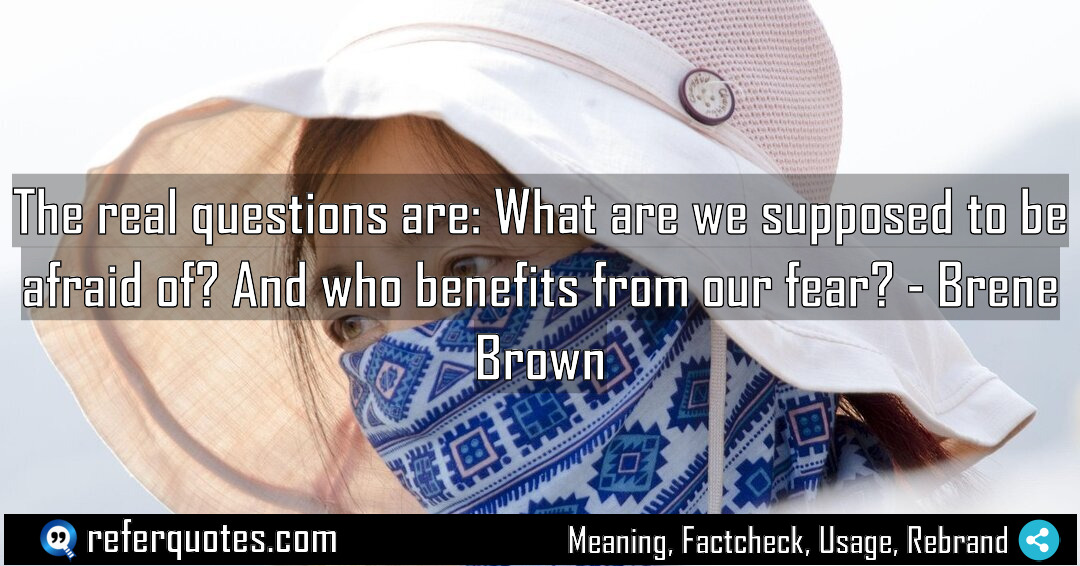When Brene Brown asks “What are we supposed to be afraid of? And who benefits from our fear?” she’s handing us a key to unlock the cages we live in. It’s a powerful call to audit the fears that dictate our lives and question the systems that profit from them. This isn’t just self-help; it’s social awareness.
Share Image Quote:Table of Contents
Meaning
At its core, this quote is about developing a critical awareness of the fears we carry and identifying the external forces that have a vested interest in us remaining afraid.
Explanation
Let me break this down from my experience. The first part—“What are we supposed to be afraid of?”—is an invitation to get curious. We walk around with this low-grade hum of anxiety, right? Fear of not being good enough, fear of what others think, fear of failure. Brown pushes us to stop and actually name it. To hold that fear up to the light and ask, “Wait, who told me I should be afraid of this? Is this *my* fear, or was it given to me?”
And that’s where the second, more potent question comes in: “Who benefits from our fear?” This is the real game-changer. Because fear is a powerful control mechanism. It keeps us small, it keeps us compliant, it keeps us consuming. Think about it. The beauty industry benefits when we’re afraid of looking old. The “hustle culture” gurus benefit when we’re afraid of not being productive enough. Even certain political narratives thrive on stoking fear of the “other.” When you start asking this question, you see the architecture of manipulation everywhere. It’s not about conspiracy theories; it’s about simple incentives. Fear sells. Fear controls.
Quote Summary
| Context | Attributes |
|---|---|
| Original Language | English (3668) |
| Category | Education (260) |
| Topics | control (58), fear (92), society (20) |
| Literary Style | didactic (370) |
| Overall Quote Score | 76 (131) |
Origin & Factcheck
This quote comes straight from Brené Brown’s 2012 book, Daring Greatly: How the Courage to Be Vulnerable Transforms the Way We Live, Love, Parent, and Lead, which was published in the United States. You won’t find it falsely attributed to other authors, as its phrasing is uniquely tied to her research on vulnerability and shame.
Attribution Summary
| Context | Attributes |
|---|---|
| Author | Brene Brown (257) |
| Source Type | Book (4032) |
| Source/Book Name | Daring Greatly (39) |
| Origin Timeperiod | 21st Century (1892) |
| Original Language | English (3668) |
| Authenticity | Verified (4032) |
Author Bio
Dr Brene Brown is the author of books such as Daring Greatly and The Power of Vulnerability. The TED talk and Netflix production based on her research reached out to millions of audience. She researches effects of courage and vulnerability in shaping people's work and relationships. She leads the Brené Brown Education and Research Group and provides evidence-based insights into practical tools to help people train themselves
Official Website |Facebook | X | Instagram | YouTube |
Where is this quotation located?
| Quotation | The real questions are: What are we supposed to be afraid of? And who benefits from our fear? |
| Book Details | Publication Year/Date: 2012; ISBN/Unique Identifier: 9781592407330; Last edition. Number of pages: 287. |
| Where is it? | Approximate page from 2012 Gotham edition |
